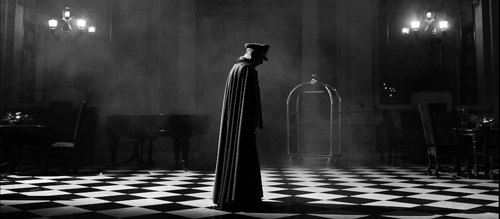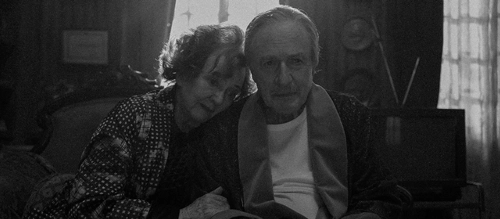El Conde (2023) Review

El Conde (2023)
Director: Pablo Larraín
Screenwriters: Guillermo Calderón, Pablo Larraín
Starring: Jaime Vadell, Gloria Münchmeyer, Alfredo Castro, Paula Luchsinger, Stella Gonet
Pablo Larraín’s newest film is a historical satire imagining the Chilean Dictator, Augusto Pinochet (Jaime Vadell), as a bloodsucking vampire. El Conde is aging and finally ready to die after 250 years plaguing the planet, doing everything in his power to quash socialism, unionists and revolutionaries. His family members, human children almost as vampiric as the man himself, his power-hungry wife Lucía (Gloria Münchmeyer) and his murderous butler, Fyodor (Alfredo Castro), have holed themselves up in a remote countryside complex to detangle a messy inheritance. An accountant (Paula Luchsinger) is called in, who also happens to be a nun charged with exorcising The Count.
This is a film without a goodie, Jaime Vadell’s Pinochet is a petulant toddler, completely unaware of his villainy. Nothing is fair, and what is the point of even being alive if he isn’t in control? It appears that his faked death in 2006 has finally taken its toll. As he is surrounded by people who openly declare their love for him, he is enabled to live in a fantasy world where this is true. Even the exorcist who openly chides him for his human rights violations seems to love him.
Larraín is well-versed at dealing with the political history of his country as his subject matter. His Oscar-nominated film No (2012), also starring Jaime Vadell and Alfredo Castro, was a historical drama about the 1988 vote in Chile, determining whether Pinochet should stay in power. Neruda (2016) explored Chile’s political history through the prism of exiled poet Pablo Neruda. While his critically acclaimed English-language movies Spencer (2021) and Jackie (2016) have cemented him as a filmmaker adept at dealing with controversial political figures.
El Conde (2023) is the first film by Larraín that directly tackles the dictator of his homeland, and it is not subtle. Every detail – even down to its release date, the 50-year anniversary of Pinochet first becoming president of Chile – is subtext and satire. Every scene exists to convey a message, from the promo poster to the clipped RP narrator.
Sometimes this works brilliantly. The detached way the vampire blends and devours his hunted hearts is a clear metaphor for the way the Chilean’s were treated during the dictator’s regime. Pinochet (Jaime Vadell) and Lucia (Gloria Münchmeyer) slow dancing to a brass band playing music that belongs in a political parade is ridiculous and hilarious.

Unfortunately, at times, the political points that Larraín wants to make overshadow any potential plot. For a film overflowing with gore, greed, love and lust, not much actually happens. But that’s okay, as long as the viewer knows that’s what they’re in for. And, within about three minutes, the viewer has got a pretty good gist of what they are in for.
The decision to film in black and white, possibly an ode to those original vampire films from Germany and Universal Pictures in the 20s and 30s, makes for rich and sumptuous viewing. It also goes some way to mask what is some truly graphic and gratuitous violence. Its almost velvety texture gives El Conde a dreamlike quality. Sadly, the notion that a political monster could be a literal monster is a dream. The nightmare being that they are in fact human.
El Conde confronts a difficult subject matter that almost accomplishes greatness. The best moments burn bright, truly grotesque, laugh out loud funny. While the gorgeous cinematography is a joy to watch. It might not be one hundred percent pitch perfect, but El Conde is well worth a watch, created by a seasoned and confident team. The note it ends on is sharp as a stake to the heart.
Score: 19/24

